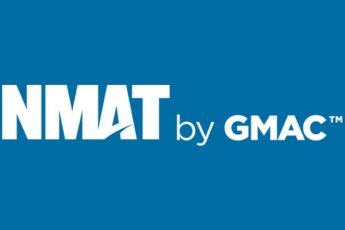Tips for counsellors to stay updated in the dynamic academic landscape
College counselling is more than a job — it’s a craft that shapes futures. In a world of opportunities and challenges, counsellors are architects of possibility, guiding students to uncover paths that align with their ambitions. The profession has recently seen significant growth.
In the United States (US), the Bureau of Labor Statistics projects a four percent growth in employment for school and career counsellors and advisors from 2023 to 2033. The increase is due to the growing behavioural health market, expected to grow by $49.3 billion over the next decade, reaching $136.6 billion by 2032. This trend is mirrored globally, with more individuals pursuing careers in counselling to meet the rising demand for academic and career planning guidance. Here are a few tips to succeed in this dynamic profession:

1) Leverage digital platforms to stay informed
Subscribing to Google News and other reliable news outlets such as EdSurge, U.S. News & World Report, Inside Higher Ed and Times Higher Education ensures access to timely updates on global trends and policies. Specialised platforms like NACAC news also provide targeted insights into admissions and college counselling, helping counsellors stay well-informed. You can even visit The Red Pen Blog for articles on application components and universities.
Social media is another powerful tool for professional development. Through LinkedIn and Twitter, counsellors can follow universities, connect with admissions officers and participate in meaningful discussions. Additionally, podcasts like Admissions Straight Talk offer expert perspectives on emerging trends and challenges in the education sector.
2) Attend targeted events and conferences
Educational events are vital for professionals to stay updated on global trends, refine their practices, and enhance their ability to guide students. Hosted by organisations like the National College Attainment Network (NCAC), International Career & College Counseling (IC3) and QS World, these conferences offer networking opportunities and professional development through keynote speeches, panel discussions, and workshops.
Attendees gain insights into academic advancements, visa policies, admission trends and destination-specific updates. Such events foster collaboration, exchange of ideas and partnerships, equipping educators and counsellors to navigate the evolving educational landscape effectively. Additionally, attending educational fairs provides a platform for students, families and educators to connect directly with representatives from institutions worldwide, gaining insights into various academic and extracurricular opportunities.
For instance, The Red Pen annually hosts the Summer Programmes Fair for families and educators of students between grades 6 to 12. The fair allows organisations, universities and schools worldwide to interact one-on-one with attendees and showcase their on-campus and online summer enrichment offerings. It’s an excellent opportunity to speak to representatives and mingle with families. In January 2025, for the first time, our Summer Programmes Fair will take place on international shores and in four Indian cities.
3) Join professional organisations and networks
Membership in professional organisations such as the IC3, The Outreach Collective (TOC), or the International Association for College Admission Counseling equips counsellors with resources to enhance their expertise. These organisations provide access to insights on industry trends, application cycles and global education changes alongside peer-learning opportunities through workshops, webinars, and mentorship programmes.
They also serve as forums for sharing best practices and fostering collaboration. By engaging with regional and international networks, counsellors can provide tailored, up-to-date guidance to students. Additionally, joining advisory boards like the College Board Counselor Advisory Board and Common App’s Counselor Advisory Committee further allows counsellors to advocate effectively for students while establishing themselves as thought leaders.
4) Build a comprehensive knowledge bank
Counselling is not a static profession; it is akin to a laboratory where continuous learning and experimentation are integral. As scientists rely on past experiments to innovate, counsellors can leverage experiences and learnings to identify patterns, predict trends and refine strategies. Therefore, maintaining a centralised repository of resources is essential. Whether working in a school setting or as part of an independent organisation, this repository serves as a hub of information that benefits individual counsellors and the entire team, including new employees stepping into the role.
At its core, a well-organised knowledge bank should include essential resources such as:
College lists: Curated by region, academic focus and other relevant criteria. Scholarship directories: Sorted by eligibility requirements and funding amounts
Case studies: To provide invaluable real-world insights into the application process
Admission trends and data: Statistics on acceptance rates, yield rates, admitted student profiles and shifting trends like test-optional policies, diversity, legacy, etc
Enrichment opportunities: Lists of summer programmes, internships and research opportunities for students across various academic levels
5) Build relationships with university representatives
Building meaningful relationships with university representatives goes beyond simply gathering information. Cultivating trust and rapport ensures that counsellors gain nuanced insights into institutional priorities, evolving expectations and unique opportunities that allow them to guide students more effectively and benefit their students. For example, Les Roches just launched a new sports business management programme — something you may want to share with your students.
Leveraging virtual tours and interactive sessions offered by universities can also provide a cost-effective way to stay updated and engaged, especially when in-person visits are not feasible.
6) Collaborate with fellow counsellors
Collaborating with fellow counsellors fosters mutual learning and improves outcomes for students. By sharing insights, strategies and resources, counsellors benefit from diverse experiences and gain fresh perspectives to address challenges effectively.
Doing so builds a supportive community focused on the shared goal of guiding students. For instance, peers may share advice on navigating niche application processes or updates on policy changes, ensuring students receive timely and accurate information. Such collaboration inspires innovation, strengthens professional practices and elevates the overall quality of guidance, ensuring that students’ needs remain the top priority.
Imagine grappling with a college list for a student who has a score of 34 in the IB and wants to study computer science in the US. Posting your queries on a counsellor forum can provide valuable recommendations from fellow professionals.
7) Stay updated on technology
Technology integration in education counselling has become more prevalent, with Artificial Intelligence (AI) playing a pivotal role in college admissions. A 2023 survey revealed that 56 percent of educational institutions currently use AI in their admissions processes, with projections indicating that 82 percent will adopt AI by 2024. This trend confirms that counsellors must stay informed about technological advancements to provide effective guidance.
AI-driven tools transform the admissions process, from application reviews to personalised student engagement. For instance, The Red Pen recently launched INK (Interactive Narrative Kit). This ethical virtual essay-editing tool assistant helps undergraduate, master’s and MBA applicants brainstorm ideas, create outlines and receive feedback on their application essays. INK complies with the AI policies of universities worldwide.
8) Research emerging career trends
Understanding job market trends is essential for guiding students toward future-ready career paths. The World Economic Forum’s “Future of Jobs Report 2023” projects that by 2027, 23 percent of jobs will undergo significant changes. While 69 million new jobs were created and 83 million eliminated, resulting in a net decrease of 14 million jobs.
9) Encourage data-driven decision making
Facts without data are simply opinions. For counsellors, harnessing data is not just an advantage but an essential tool in providing informed, precise and actionable advice. Counsellors who consistently analyse admission statistics, monitor destination-specific trends and review success stories are better equipped to offer students a competitive advantage by aligning recommendations with real-world evidence.
Beyond external data, counsellors should prioritise gathering and evaluating internal data. Implementing tools such as student surveys to track outcomes — like acceptance rates, scholarship awards or post-graduation success — provides a clear picture of effective practices and areas for improvement. This ongoing feedback loop allows counsellors to refine their strategies and adapt to the evolving needs of students.
As a counsellor, the journey of learning never truly ends. Therefore, as a parting note, I would like to say that staying curious is essential. Continuous learning means giving informed advice, adapting to emerging challenges, and confidently leading in an ever-changing landscape.





